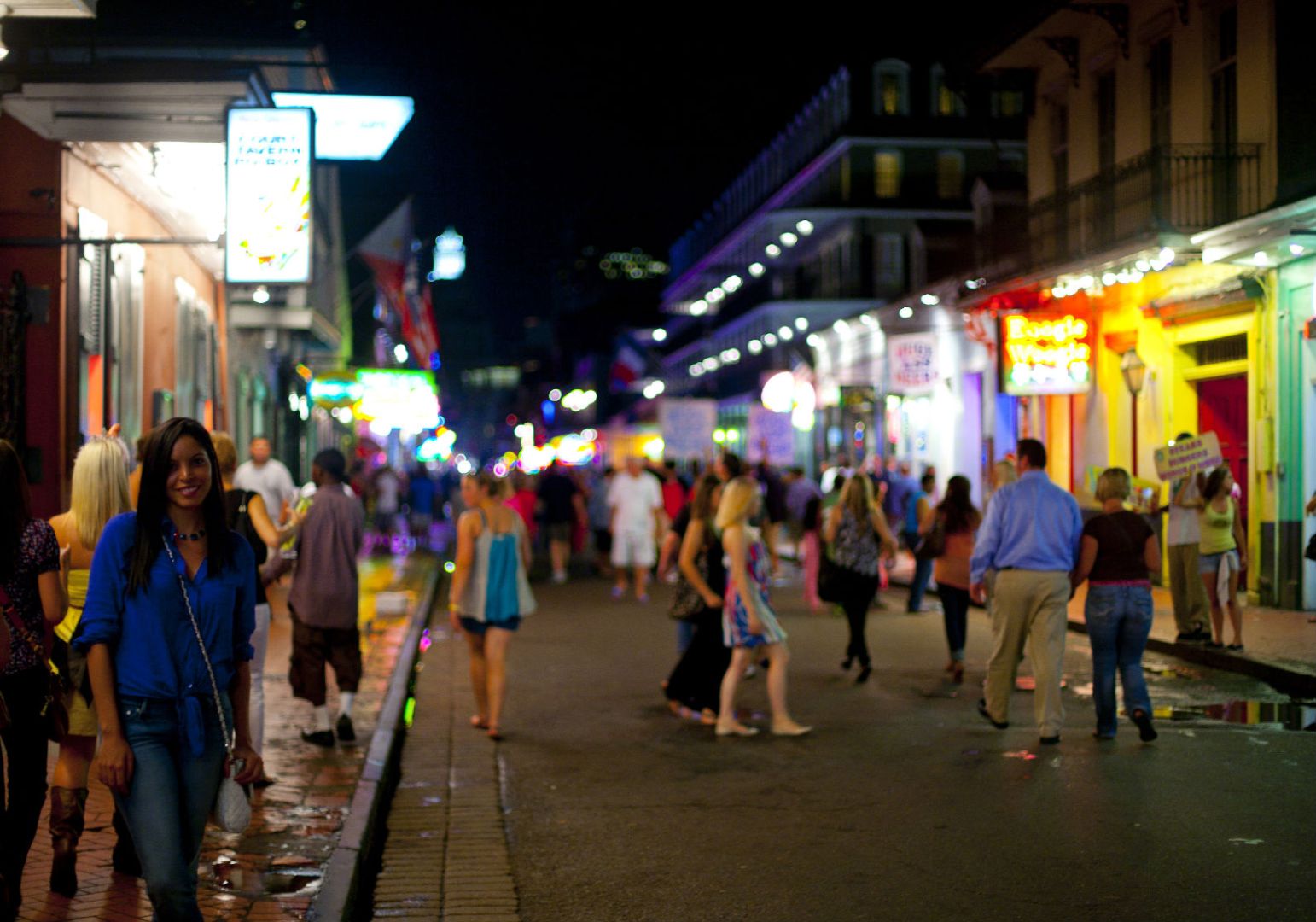New Orleans's Bourbon Street has long been notorious for its nightlife—particularly thanks to Mardi Gras and the year-round ability to (legally) drink alcohol while wandering the neighborhood. But amid the bars, strip clubs, and gay bars that line much of these 13 blocks in the historic French Quarter, there was one thing the city recently banned (or tried to ban) people from doing in public at night: preach.
In 2011, the city council passed a ban which restricted "disseminating any social, political or religious message" overnight on Bourbon Street. This resulted in disciplinary action against street preachers such as Paul Gros, a pastor who has challenged the First Amendment legitimacy of the law after being threatened with arrest. His lawsuit was consolidated with two other cases resulting from the arrest of nine preachers during a gay pride event in 2012.
The cases, including one where the ACLU defended a Christian woman who converted thanks to a Bourbon Street preacher, prompted a federal district judge to temporarily block the ban this past September.
Last week, the city council agreed to revoke the ban. New Orleans street preachers will once again enjoy freedom of speech—so long as they don't hazard a risk to passerby or traffic.
The city council passed the amended law 6-0 (one member absent), striking the prohibition on street preaching and narrowing the limitations on "offensive, obscene, or abusive" speech to a ban on "obscene language." The ordinance falls under the city's prohibitions on "aggressive solicitation."
Although the change won't necessarily mean the end of Gros's case in court, his lawyer believes that the lawsuits were a driving influence in opening up freedom of speech on Bourbon Street.
CT previously noted controversy when a street preacher spoke on homosexuality to passersby, and covered the rise of former New Orleans street preacher Fred Luter to become president of one of America's largest evangelical denominations.
CT also reported on New Orleans in the wake of Hurricane Katrina.









